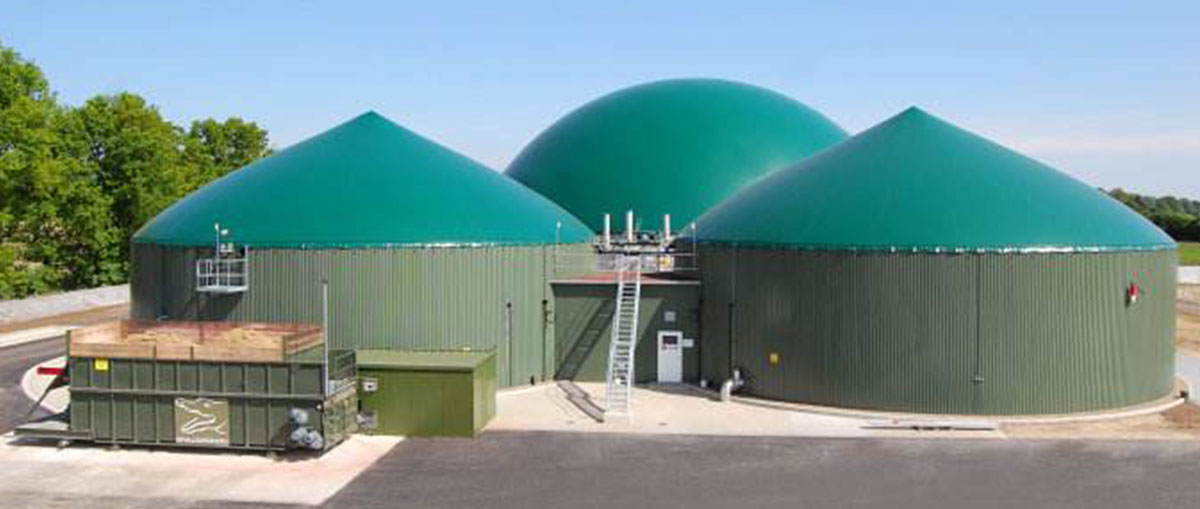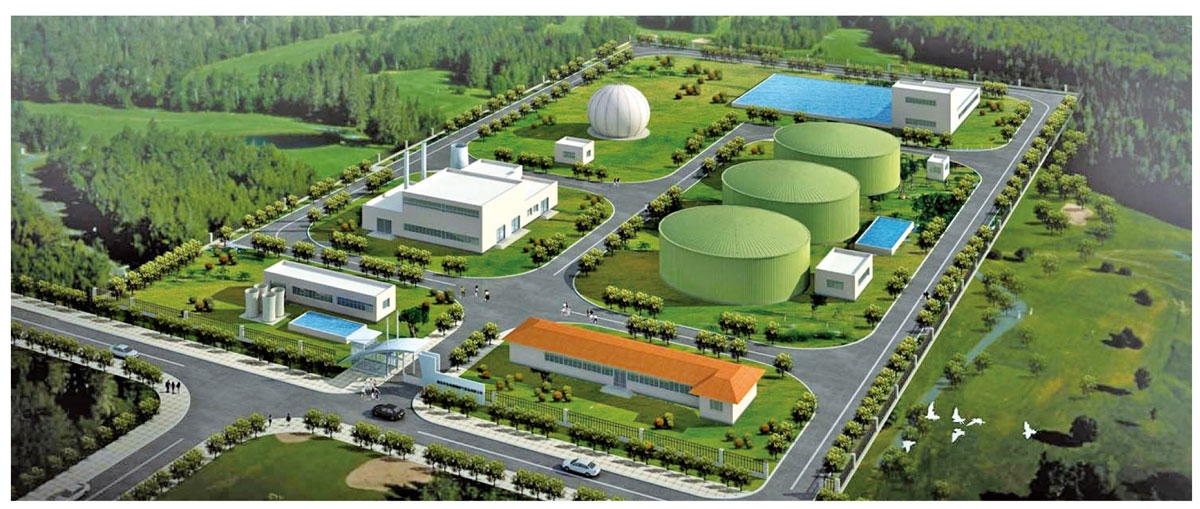- 沼气发电工程
沼气发电工程
Biogas Power Generation Project
沼气发电工程是集环保和节能于一体的能源综合利用工程。它是利用工业、农业或城镇生活中的大量有机废弃物(例如禽畜养殖场粪污,酒厂、食品厂等各种加工厂的有机废弃物,餐厨垃圾、城市垃圾和污水等),经厌氧发酵处理产生的沼气,驱动沼气发电机组发电上国家电网或工厂自用,也可用于温室种植供热。另外沼气也可供工业与民用燃气,沼液作为液态有机肥,沼渣加工成固态有机肥,可以为农作物种植提供肥料。
Biogas power generation system is an energy saving and environmental friendly system. It’s to use industrial waste (organic waste in winery,food factory and etc.),agricultural waste(farm animal waste) or municipal domestic waste(restaurant waste,kitchen waste,urban waste and etc.) to produce biogas by anaerobic fermentation. Power generated by biogas engine may be connected to grid or self consumed. Waste heat from biogas engine may be used in production of biogas(anaerobic fermentation),greenhouse heating, industrial heat supply or civil heat supply. Besides, biogas may also be used as industrial fuel gas or civil fuel gas. Biogas liquid is used as liquid organic fertilizer. Biogas residue may be processed to solid organic fertilizer used in agriculture.
沼气发电技术本身提供的是清洁能源,不仅解决了沼气工程中的环境问题、消耗了大量废弃物、保护了环境、减少了温室气体的排放,而且变废为宝,产生了大量的热能和电能,符合能源再循环利用的环保理念,同时也带来巨大的经济效益。沼气发电具有创效、节能、安全和环保等特点,是一种分布广泛且廉价额分布式能源。
沼气发电在发达国家已受到广泛重视和积极推广。生物质能发电并网在西欧一些国家占能源总量的10%左右。
Organic wastes are converted to heat and electricity in the biogas power generating system. Biogas power generating system is a clean,efficient,economic and safe power generating system. It’s valued and widely spread in developed countries. In some west European countries, grid power generated by biogas accounts for about 10% of the total amount of energy.

沼气发电厂
Biogas Power Generation Project

沼气热电联产工艺流程
Biogas Cogeneration Process

禽畜养殖粪污,酒厂、食品厂等各种加工厂的有机废弃物,厨余垃圾,秸秆、菜叶、草、树叶等农业废弃物,经处理后进行厌氧发酵,产生沼气,电热联产。电能可上网销售,余热可为工业与居民供热,也可用于温室种植供热。另外沼气也可供工业与民用燃气,沼液作为液态有机肥,沼渣加工成固态有机肥,可以为农作物种植提供肥料或销售。
There are various waste that can be used as raw materials for producing biogas, such as agricultural wastes, kitchen garbage, and other organic wastes from livestock farms, breweries and food-processing plants. After proper pretreatment and anaerobic digestion, these organic wastes can be transfer into biogas, and then into electricity. Then power can be sold, while waste heat can be used for heating. Also, biogas can be used as fuel, while slurry can be used for liquid fertilizer, and solid biogas residual for solid fertilizers.




